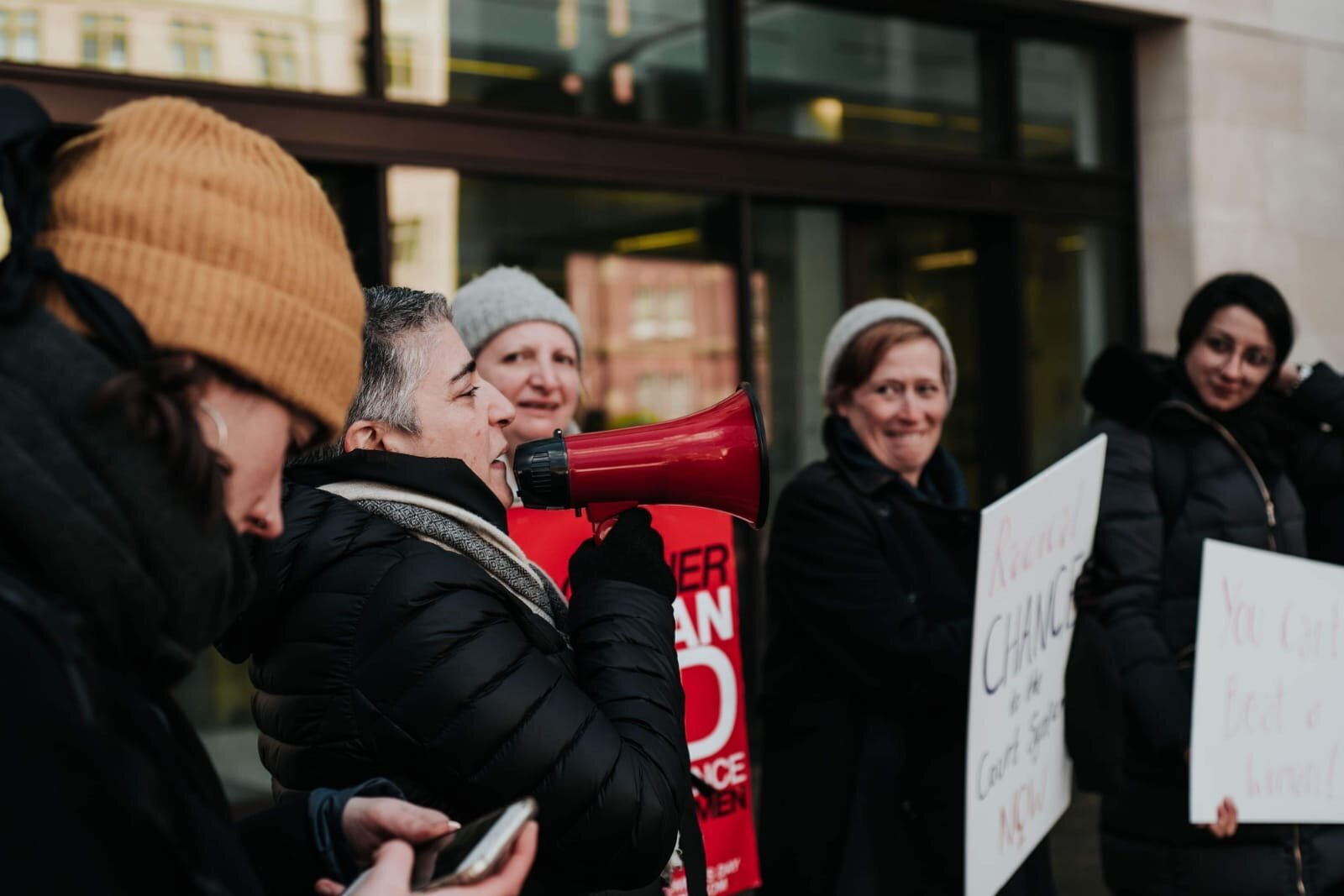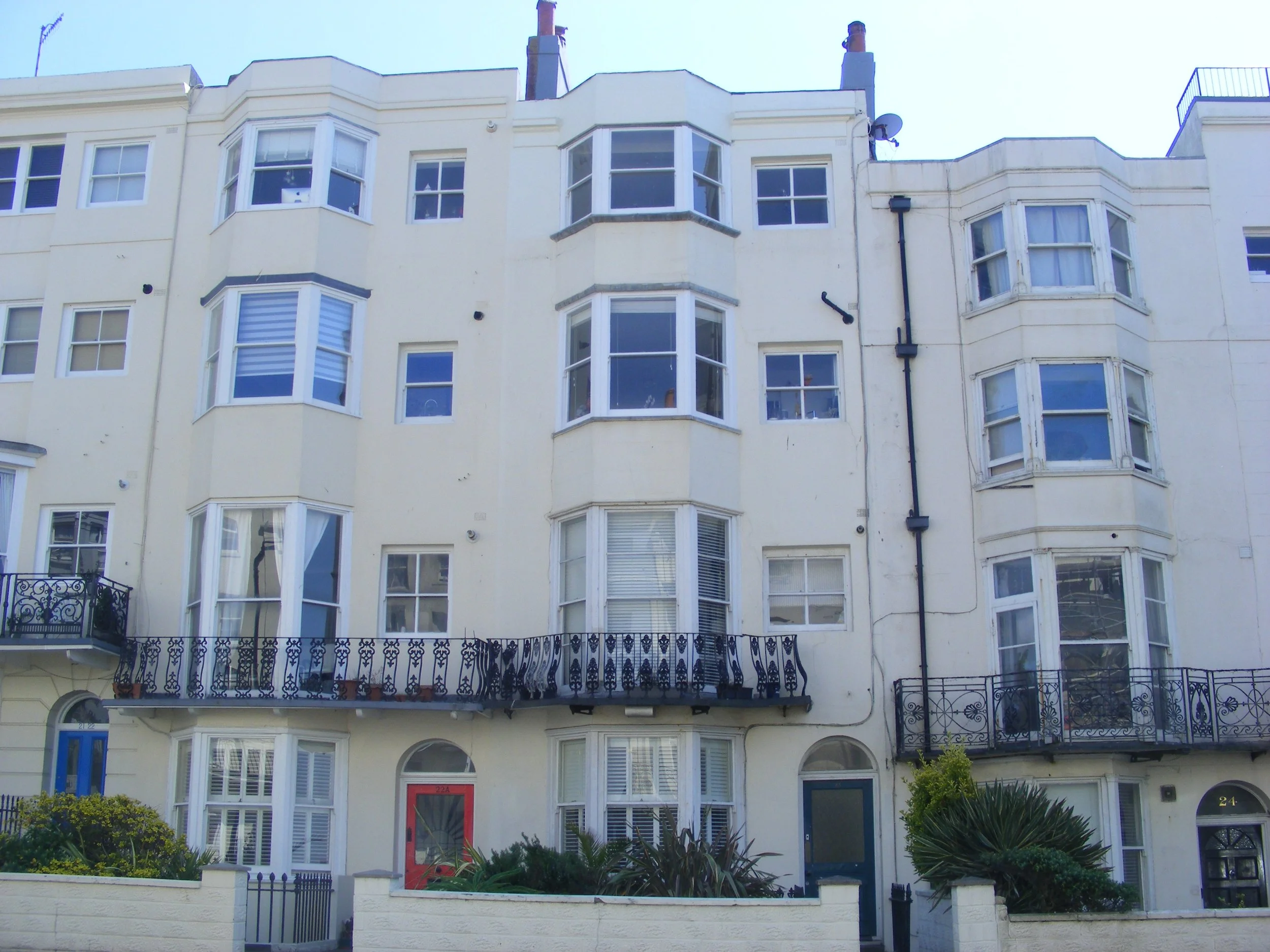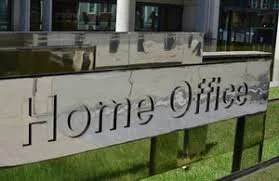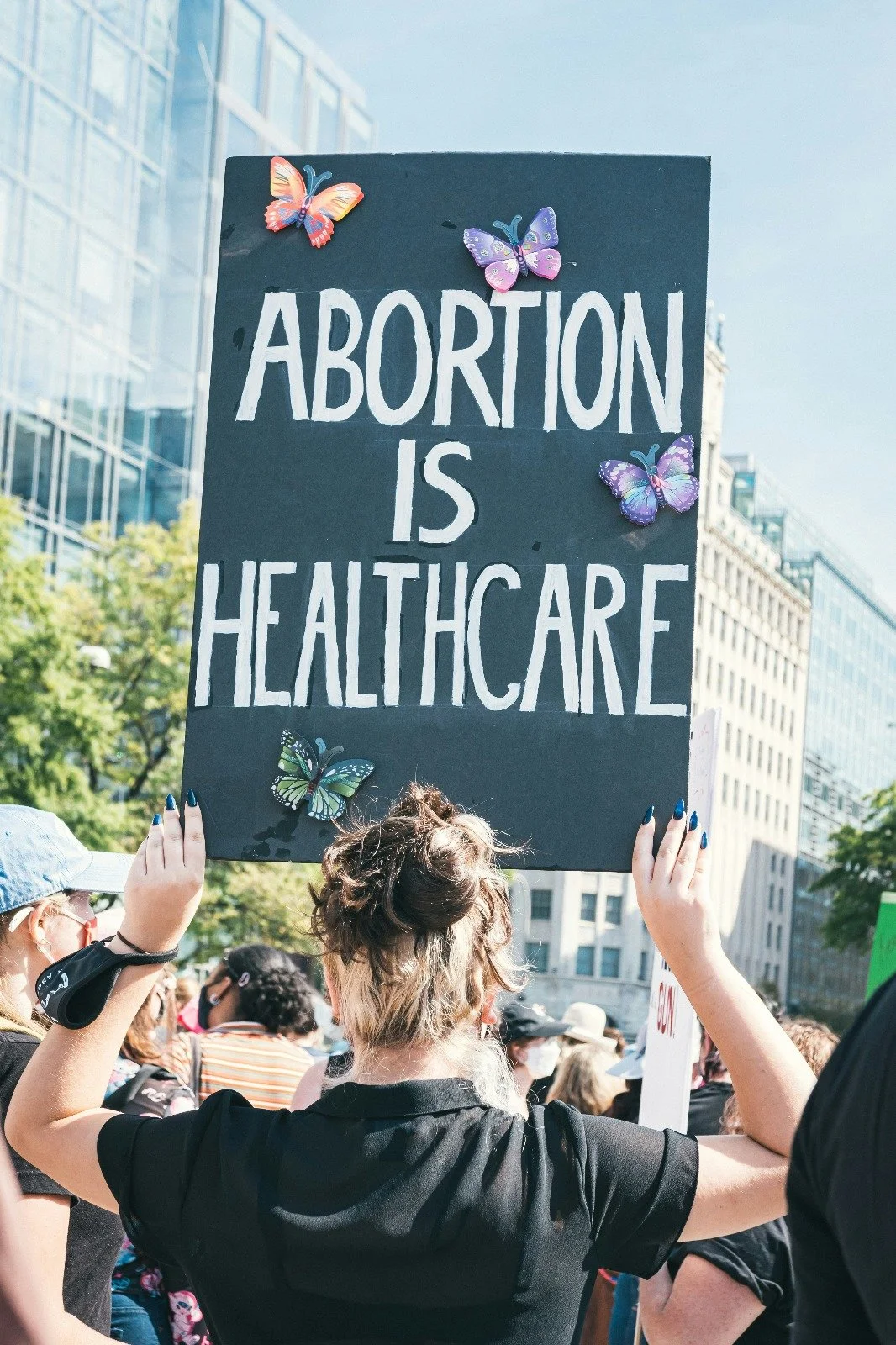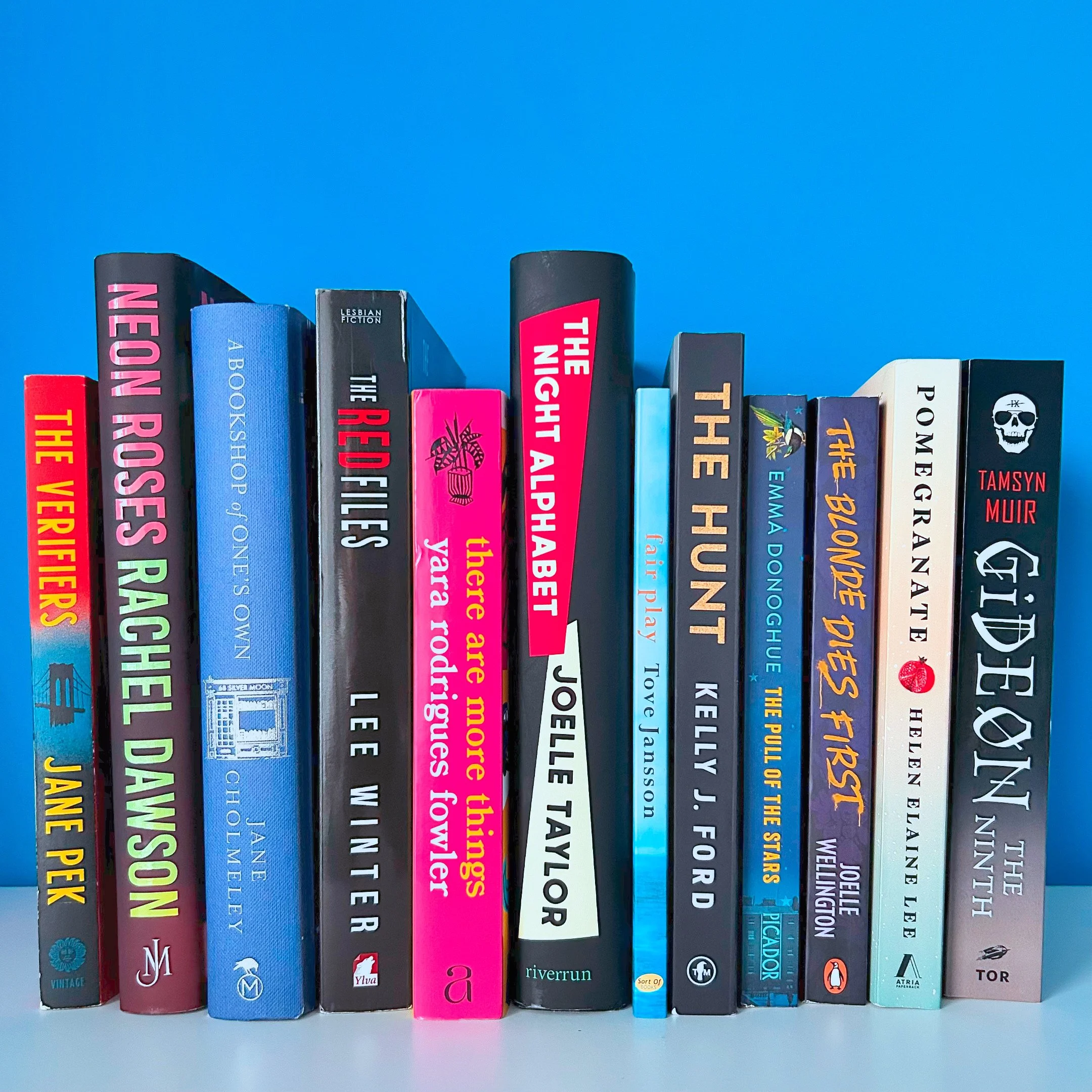Learn about the causes we are fighting for and how you can get involved.
Narrow your search or read everything.
FiLiA has spoken to women across the UK with disabilities or caring responsibilities about the Government’s welfare reform proposals. It is clear from what they have told us that the reforms could lead to significant harm – as we set out in our response to the Department for Work and Pensions’ consultation, Pathways to Work: Reforming Benefits and Support to Get Britain Working Green Paper. Further detail, as well as our response and Parliamentary briefing can be found here.
FiLiA have written to Ofcom and the Guardian after the Guardian reported on Ofcom's so-called research into the ‘manosphere’ and misogyny. FiLiA have significant concerns about the impact this research could have on women and girls, and are asking Ofcom to recall it.
‘If only women’s experiences were taken as seriously as the unquestioned statements of 38 men.’
It is remarkable that a women such as Florence Canning could disappear without a trace after devoting nearly ten years of her life campaigning for the vote.
There is no memorial to Florence in Brighton, indeed, there is nothing to remember Florence anywhere, apart from her grave in the churchyard of St Paul’s Church, Tupsley, Hereford, and even that was in need of restoration prior to a successful Crowdfunder in spring 2023.
To Saudi Arabia’s allies in London and Washington: stop treating our lives like a line item on a trade deal. From Trump’s Riyadh photo-ops to his latest pledge of ‘no more lectures on how to live,’ the message is clear: authoritarianism is culture, and repression is tradition—as long as the oil keeps flowing. And from Keir Starmer’s silence, it seems Britain agrees. The economy comes first, human rights second. We’re not asking for heroism. We’re asking you to stop hiding behind diplomacy while our rights are crushed. If you can put human rights on the table when it's Russia or Iran, you can do the same with Saudi Arabia. If you can leverage deals for weapons, oil, and football, you can do it for freedom.
The FiLiA Campaigns and Policy team have been working to support women to contribute to the Government’s consultation on disability benefits reform. We wrote to Parliamentarians who are also working to support disabled people to share our work and some of the responses we've had, and invite them to support and work with us to stand up for disabled women and carers who could be devastated by the proposed reforms.
We left the day in awe of Ash and her team in pushing forward with this important bill. We will continue to support it. We know that the more we move towards positive change, the louder the voices of opponents will be. We will continue to amplify the voices of survivors and encourage as many women as possible to support this bill and bring change.
When we spoke to survivors as part of our Women First interviews, they told us how important it is that women are asked about moving on from prostitution. We recognise that supporting a woman to move on is complex; there is no one-size-fits-all approach, and it is important that there is support across a range of needs: health, financial, housing, trauma. However, a fundamental starting point is actually asking a woman about moving on
On Wednesday morning, in a packed courtroom at the Supreme Court in London, the judgment in the For Women Scotland v The Scottish Ministers (FWS2) case was handed down. The Supreme Court unanimously agreed that the terms ‘man’, ‘woman’ and ‘sex’ in the Equality Act 2010 refer to biological sex. Holding a GRC does not change sex for the purposes of the EA2010. The court ruling makes clear to all what ordinary women across the UK have been saying for years: the law protects single-sex spaces and services.
Many of the women we have spoken to feel frustrated with decision makers who seem blind to the female perspective or the impact their work has on women.
Behind our laws, practice and provision, workplace policies or budget cuts, there’s often an invisible bias ‒ one that disproportionately adversely affects women.
And the impact is felt even harder by those at the intersections of race, disability, class and migration status. Too often the needs of women with disabilities, ethnic minority and migrant women, lesbians and women living in poverty are ignored, their voices sidelined, and their struggles compounded by policies that never considered them in the first place.
When we started work in Kakuma in 2020, refugees were provided with rice, soya beans, maize and oil; now they are given sogrum, a product most often used as animal feed in the UK.
After a sleepless night, and with the local UNHCR clinic refusing to help lesbian families, she sadly died the next morning.
Then once they've grown into women, the medical model dismisses women as exaggerating pain ‒ simply walking hysterical hormone sacks fainting at the slightest breeze.
Maybe they grow up and find someone to love and support them? But abuse and exploitation of disabled women figures show they are more vulnerable and have fewer services available for them. There are less shelters; they are less able to just quickly jump on a free train and escape and risk losing the services and medication they need.
As FiLiA volunteers, our group consisted of women from different parts of the world. Some of us grew up believing that sex-based violence was mainly an African issue, shaped by the struggles in our home countries. The UK, after all, prides itself on human rights and women’s rights. But as we stood among thousands of women, each carrying their own stories of pain and survival, we realised a harsh truth: violence against women knows no borders.
One of the most terrifying experiences women face is the Home Office Reporting System. For years, I had to report in person every single week, knowing that, at any moment, I could be detained.
The impact on mental health is devastating. The days before reporting are filled with anxiety, not knowing if you will come back, not knowing if that would be your day to disappear into detention.
The fear is relentless. Reporting is framed as a welfare check, but we must call it what it truly is: state-sanctioned psychological warfare. These women already live under strict controls, in National Asylum Support Service accommodation, barely surviving on limited financial support. The Home Office knows exactly where they are. So why force them to report? To keep them in fear.
FiLiA's detailed response to the Bertin Review published last week, in which we drew on the experiences shared by Women with direct experience of the industry, and we continue to push for them to be consulted in any further reviews. We welcome the Review and its recommendations and are reassured to see the Government recognise the urgent need to tackle the harms of pornography. However, we are clear there is no such thing as ‘safe’ pornography and more needs to be done to protect and support women and girls who are harmed by pornography.
The House of Commons held a general debate for International Women's Day on Thursday 6th March 2025. This briefing, sent to MPs to participate in the debate, introduces FiLiA’s new campaign to urge the Government to better recognise and consider women in their policy making, including by consulting with a variety of women's organisations for all policy affecting the public, and consistently producing thorough Equality Impact Assessments.
As a national organisation working for women’s sex-based rights, we are writing to express our considerable anger and distress at the news that the National Police Chiefs’ Council is reviving the discredited guidance allowing male staff identifying as women to perform intimate searches on women. The fact that this would bring all police forces into line with the recently-declared policy of British Transport Police increases the fury among women concerned about women’s rights.
PRESS RELEASE: FOR IMMEDIATE RELEASE
U.S. Mother Sentenced to Over Three Years in Spanish Prison After Escaping Domestic Violence
A U.S. mother of two has been sentenced to three years and three months in a Spanish prison after fleeing to the United States with her eldest daughter to escape domestic violence in Spain. Despite returning under the Hague Convention on International Child Abduction, she now faces an unjust conviction that violates fundamental human rights and international legal agreements.
We all know how we got here. The failure of the left to address the gender identity activism gave this extraordinary open goal to the right. It was all predictable; we predicted it. Now we’re here.
This does not absolve us from thinking critically about the harmful consequences of working with Christian Right groups, including the ADF and the Heritage Foundation, which are coalition partners in Project 2025.
On 20th January, Donald Trump took office as President of the USA. Almost immediately he suspended the US refugee resettlement program as part of a series of executive orders cracking down on immigration. Many of the refugees, who had been cleared to resettle in the U.S. after fleeing war or persecution in their home countries, already had plane tickets in hand when the suspension was announced.
We urge the England Cricket Board to withdraw the England team from the forthcoming match against Afghanistan on 26th February, which is scheduled as part of the International Cricket Council Men’s Champions Trophy 2025 tournament. To go ahead with this match, while the Afghanistan government further restricts women’s rights and the ability to have any social existence, implies that the Board and the team are unconcerned about the denial of the most basic human rights for female people.
The English version is followed by the French version.
La version anglaise est suivie de la version française.
This article marks the ten-year anniversary of Canada’s prostitution law reform, Bill C-36, also known as the Protection of Communities and Exploited Persons Act. This landmark legislation was a critical step in acknowledging the harms of the prostitution system, aiming to protect women and children from sexual exploitation while reducing demand and incidence. Over the past decade, feminist groups have actively evaluated and critiqued the law’s application, identifying both its successes and areas in need of improvement. This article provides a vital opportunity to understand the ongoing efforts to combat sexual exploitation, the challenges faced in implementing laws that prioritise equality, and the importance of relentless advocacy in the fight for a society free from exploitation.
In North-East Syria, also known as ‘Rojava’ (the Kurdish name for Western Kurdistan), the Syrian state largely withdrew after the people's uprising in 2012. The majority Kurdish population in the region took the initiative and began to establish self-administration on the basis of communes and councils and empowerment of women. From the beginning of the revolution, women organised themselves independently, set up their own communes and councils, participated in all political decisions, and implemented a co-chair-system and gender quotas in all institutions as well as women's and family laws. A women's revolution began in Rojava.
Women have been key to the success of the trade union, and they have reaped huge benefits from the collective successes of the wider labour movement. However, too often, the movement has let women down.
We want to change that.
Join the FiLiA Trade Union Women's Network and help us make unions work for women.
This is not all of us ‒ the killed ones are missing.
This was the chanting of thousands of mostly Women that marched along the Gran Via in Madrid yesterday, accompanied by the drumming of a group of Women dressed in black that seemed to replicate the heartbeat of those of us there and echo the ones of those who are no longer with us.
Here at FiLiA in the Women First team, we firmly challenge the notion of prostitution as being in any way empowering. We consider it another form of male violence. As part of the Women First project, we have interviewed sex trade survivors who collectively have over 100 years’ experience of being in the sex trade. This has included street, escort, sugar daddy and brothel work. Their experiences were all different but many of the themes were similar, namely that trauma and abuse served as a gateway into the sex trade and that it takes time and specialist support to exit and recover from the sex trade.

